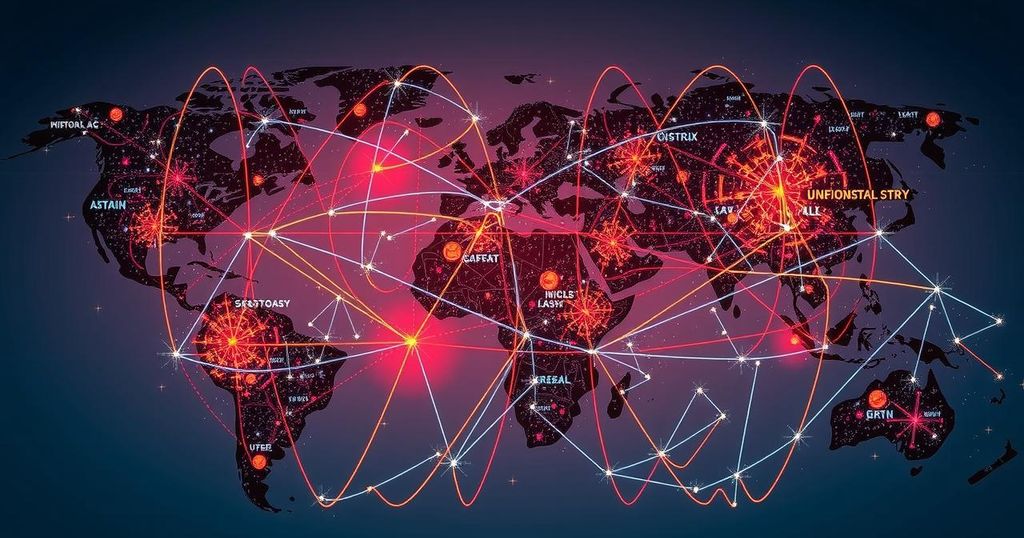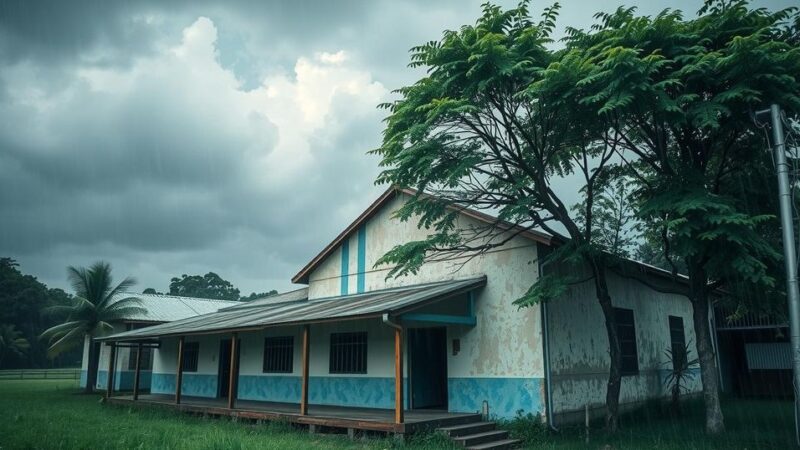As 2024 concludes, civil society faces intensified challenges in human rights advocacy amidst geopolitical unrest, economic disparity, and climate change. Despite adverse conditions, organizations have achieved notable successes. Looking ahead to 2025, civil society is poised to confront ongoing repression while striving toward a more equitable and just world through continued activism and resilience.
As 2024 draws to a close, it has been a year marked by significant turmoil and major challenges for civil society in its quest for social justice and human rights advocacy. The pressures of resisting authoritarianism and regressive legislation have tested organizations at every turn, yet they have achieved crucial victories despite great adversity. Looking ahead to 2025, several pressing challenges are anticipated to intensify, particularly regarding geopolitical conflicts, climate concerns, economic disparities, and the erosion of civic freedoms.
The evolution of international relations, especially in volatile regions such as Lebanon and Syria, highlights the possibility of renewed conflicts as various state actors reconsider their strategies. Simultaneously, the 2025 requirements under the Paris Agreement for countries to formulate comprehensive emissions reduction strategies coincide with increasing environmental crises. The upcoming climate conference in Brazil represents a pivotal moment, as nations must confront the power of fossil fuel industries and grapple with the unanswered dilemma of climate financing, all while coping with recurrent extreme weather events and related socioeconomic ramifications.
Globally, economic instability is expected to worsen, particularly for economically disadvantaged individuals facing rising living costs. The disparity between wealth and poverty is increasingly visible, leading to public unrest driven by young populations often stripped of opportunities. This discontent may foster political volatility, which right-wing populists are likely to exploit. Nevertheless, emerging demands for labor rights and progressive wealth redistribution policies signal a growing awareness and assertion of public agency.
The political landscape remains dynamic, with numerous elections anticipated in the coming year. In environments where electorates can freely express their will, there is an inclination to favor change, rejecting sitting leaders due to widespread economic distress. While populist movements may gain a foothold temporarily, their prolonged governance could similarly turn public sentiment against them, prompting authoritarian responses and increased discrimination against marginalized groups.
Technological developments, particularly in artificial intelligence, present additional complications, as inadequate regulations allow for increased surveillance and disinformation tactics, notably during volatile political periods. The rise of AI-enhanced monitoring of civil society activists indicates a troubling trend towards normalizing authoritarian control.
Migration pressures, driven primarily by climate change and socio-political repression, are predicted to escalate, complicating the landscape for refugees. Right-wing policy shifts in the Global North may exacerbate the plight of migrants, leading to harsher governmental responses during crises. Furthermore, the backlash against women’s and LGBTQI+ rights continues to gather momentum, influenced by international funding and misinformation campaigns.
The operational landscape for civil society organizations is increasingly constrained, facing mounting restrictions and a hostile environment characterized by anti-NGO legislation and increased authoritarian measures. Many organizations are compelled to allocate more resources toward their own survival rather than toward advocacy efforts,
Nevertheless, despite these grave challenges, civil society remains resolute in its mission, employing a diverse range of strategies, including protests, legal action, and international advocacy. Notable victories have punctuated the year, with significant reforms in reproductive rights, same-sex marriage legislation, and successful mass movements against tyranny. The momentum gained demonstrates the potential for collective action to effectuate change even under adverse conditions.
The voice of civil society underscores the ongoing struggle for a more equitable and sustainable world, emphasizing hope in the face of adversity.
The article discusses the challenges that civil society faces as it navigates the complex landscape of human rights and social justice in 2025. The content addresses the heightened scrutiny and pressures on activists and organizations globally, amidst political, economic, and environmental adversities. Additionally, it highlights significant developments in warfare and climate initiatives that may reshape civil society’s strategic approaches in promoting democratic values and comprehensive rights protections.
In summary, civil society is steeling itself for an impending year of increased challenges marked by economic hardship, geopolitical tensions, and rising authoritarianism. However, historical victories and the resilience of activists demonstrate a commitment to advocacy and reform that seeks to uphold human rights and social justice. As the situation evolves, the continued fight for democracy, fairness, and equity remains a testament to the enduring spirit of civic engagement and solidarity.
Original Source: www.ipsnews.net







